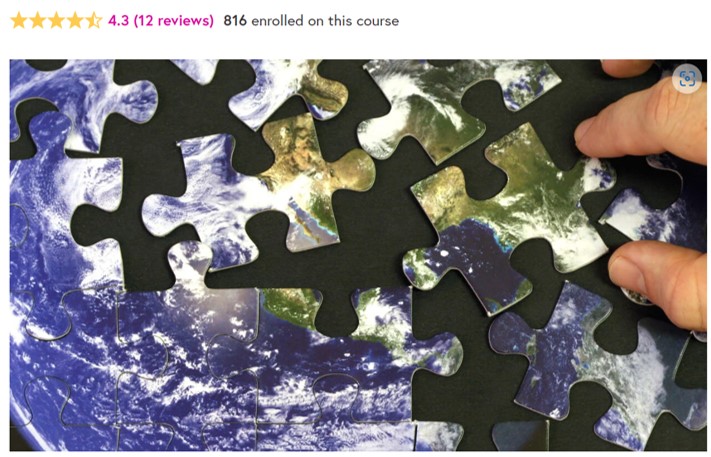Systems Thinking
** Course is now live! **
Using Systems Thinking to Tackle the Climate and Biodiversity Crisis
This course is free to join on the FutureLearn platform.
After registering with FutureLearn, learners select the free option to enroll on the course which gives them access to the full content of the first Week for a period of one week. The second Week is then released with access for a further week. For ongoing access and a digital certificate, learners will need to pay for either an upgrade or a subscription.

Learner Testimonials:
“Truly fascinating and eye-opening. Since completing the course my approach to thinking about the climate and biodiversity crisis has changed.” – Ramandeep Nijjar
“This may be the most significant FL course I’ve taken… “… [a] vital and thought-provoking course. I guess it is never too early or, hopefully, too late to start learning about systems thinking and applying it to live problems.” – Tavis Reddick
Take a big picture approach to the climate and biodiversity crisis
With crises as vast, complex, and interconnected as climate change and biodiversity loss, focusing on one aspect of the problem will never be enough. Systems thinking offers a new way of seeing and understanding environmental issues, which could radically change how we go about tackling them.
On this two-week course from the University of Reading, you’ll learn what systems thinking is and how it could transform your approach to the climate and biodiversity crisis.
Explore why mindsets matter when it comes to environmental issues
Climate experts are clear that purely economic or technical fixes are insufficient to solve environmental problems. To achieve meaningful and lasting change, we need to shift values, mindsets, and worldviews.
Analysing examples of current solutions and their shortcomings, you’ll consider the pitfalls of surface thinking. You’ll delve into the root causes of environmental issues, and use these to envisage more effective solutions.
Investigate what it means to take a big picture approach
In the second week of the course, you’ll put systems thinking into practice. You’ll make use of tools for mapping out environmental issues, asking how they connect to each other and to you.
Be inspired to change your own approach to the problem
By the end of the two weeks, you’ll understand how systems thinking could inform your own approach to the environment.
You’ll be able to act and make a genuine difference to the climate and biodiversity crisis.
What will you achieve?
By the end of the course, you‘ll be able to…
-
Demonstrate competency in and a mindset attuned to systems thinking
-
Critique superficial technological and economic ‘solutions’ that address one issue but ignore the wider effects on interlinked systems
-
Assess your own values to identify how what’s important to you affects your actions and priorities
-
Engage with diverse worldviews and broaden your perspectives on issues of climate and biodiversity
-
Practice analysing problems using simple systems mapping tools to help you understand the bigger picture
Who is the course for?
This course is designed for anyone with an interest in climate change and biodiversity, or in the theory behind systems thinking. It will be particularly valuable for students or young people hoping to integrate protection of the environment into their careers.
